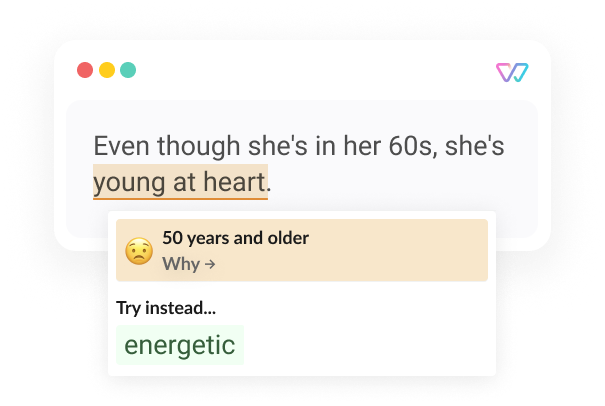 Acquired Diversity
Acquired Diversity
Acquired diversity refers to characteristics a person acquires in the course of their life, from age to education, from trauma to status. Witty‘s inclusive suggestions help you create an appreciative and accessible climate for all.
Think of the many experiences, past and present, that shape a life: We age, adapt to changes in socioeconomic status, get an education, form life partnerships or marry, find and make families, experience loss, separation, and trauma. We are veterans, live with difficulties others can’t see, have accidents, and manage changes in our faculties and capabilities. We are survivors of conflict, violence, and incarceration. The sum of our experiences and perspectives constitute the acquired diversity we bring to the table. Witty alerts you to language that:
- excludes or marginalizes people based on acquired characteristics.
- trivializes the impact of difficult experiences and traumatizing life events.
- reinforces social stigma and biases surrounding acquired diversity, such as age, class, or veteran status.
- is used in microaggression against people of different experiences.
Unconscious bias
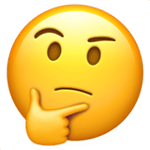 Classism
Classism

Try to imagine a reader lower in hierarchy or socio-economic level than yourself: How would you feel when re-reading your own words?
For many people, this formulation implicitly communicates a feeling of condescension. It is associated with a power imbalance and can be perceived as "a top down" mindset. It may or may not also express a sense of social class difference. In short, readers unconsciously realize that the text is not at their eye level. And thus excludes them from the conversation.
Basic Example
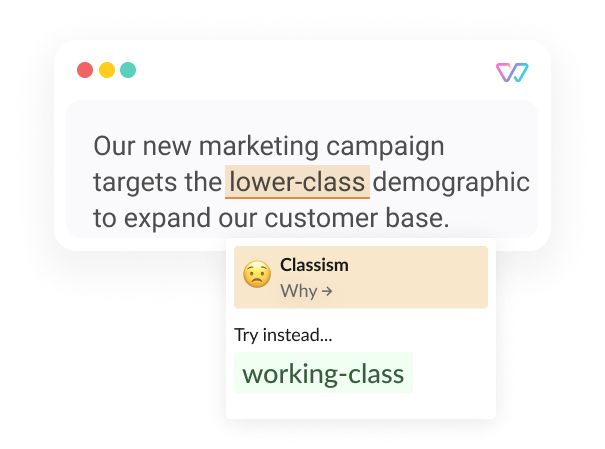
Advanced Example
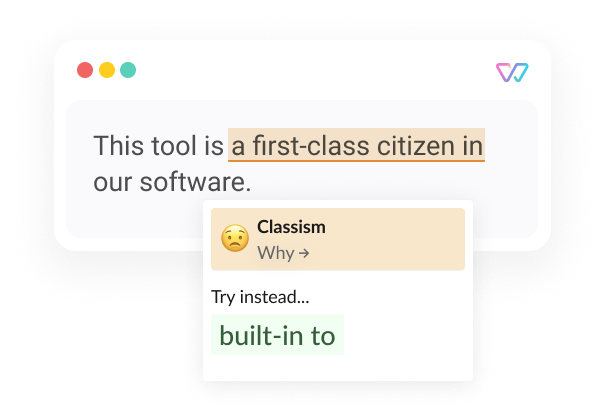
Basic Example
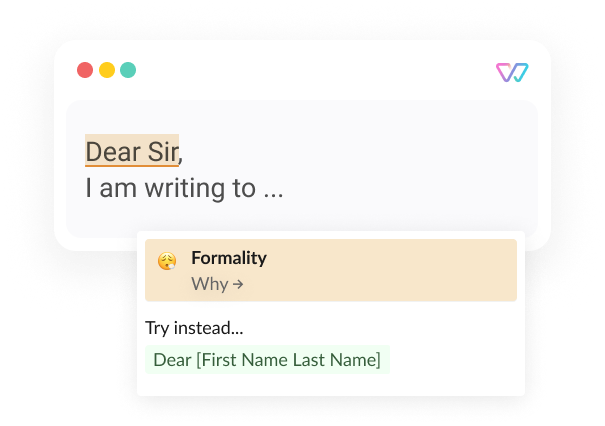
Advanced Example
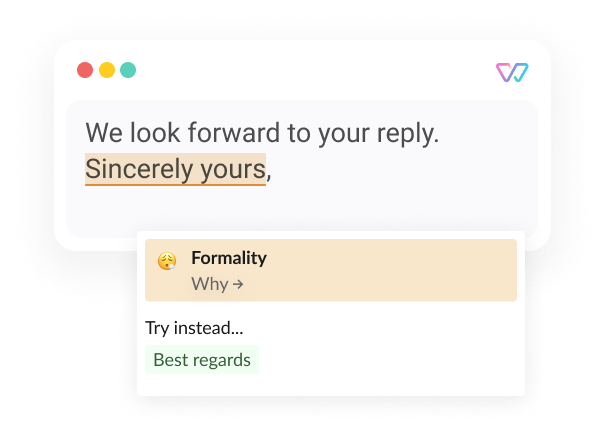
 Formality
Formality

Formal language is often used in a diplomatic context. It expresses respect between countries. In everyday business situations, however, it can seem odd. It can implicitly convey that an interlocutor is "something better." Formal expressions can kill emotionality and are not conducive to eye-to-eye cooperation. This is contrary to what we are trying to achieve: an inclusive culture where everyone can bring their perspective to the table and realize their full potential.
Age
 Age information
Age information

To foster trust across age groups, focus on strengths and needs, not chronological age.
Age-based prejudice remains one of the most socially accepted and institutionalized forms of discrimination. In the workplace, both the youngest and oldest are most likely to be treated unfairly in multigenerational teams, whether it’s patronizing older employees or underestimating the abilities of younger colleagues. To engage people of all ages, focus on required skills and strengths, and mention - or ask about - age only when it’s essential to your message.
Basic Example
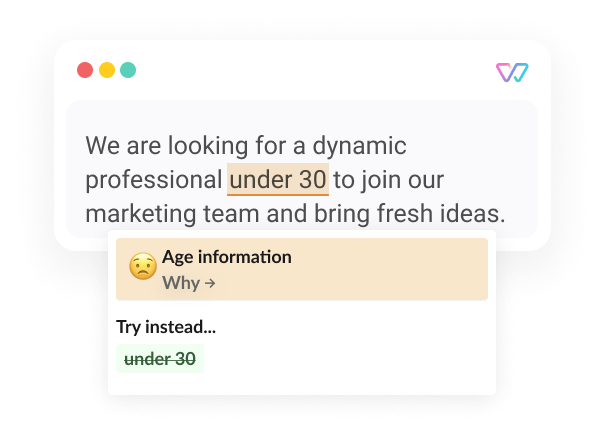
Advanced Example
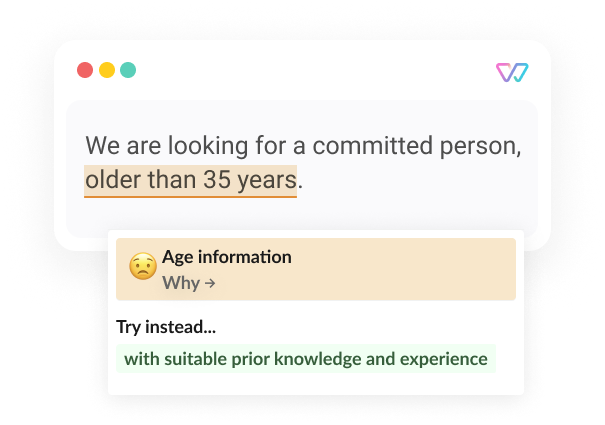
Basic Example
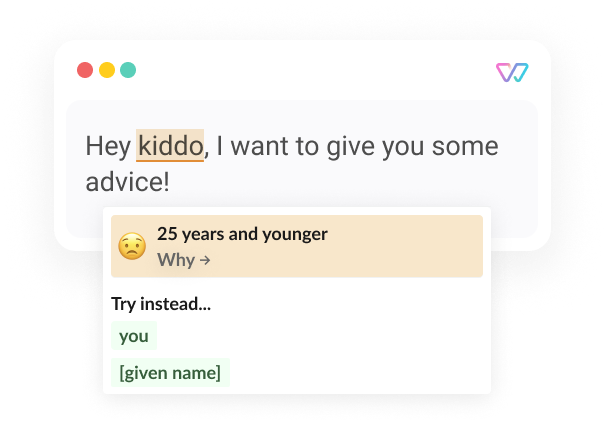
Advanced Example
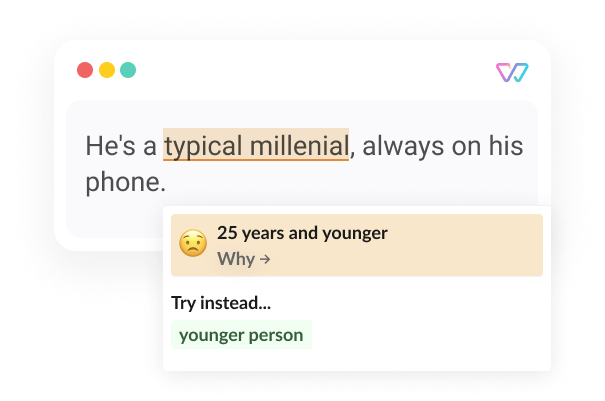
 Age-bias against 25-
Age-bias against 25-

To show you value individuals of all ages equally, avoid generalizations about people aged 25 and under.
We generally associate ageism with discrimination against older age groups. But ageism cuts both ways. Younger people, too, experience age-based discrimination, especially in a corporate culture that equates years on the job with skill and the ability to take on responsibility. Negative stereotypes about Millenials and Gen Z, from a “need to be coddled” to a lack of interest in “putting in the work,” negatively impact their career trajectories and access to mentorship and promotions. Avoid age-based clichés to show you value people for their abilities and capabilities no matter their chronological age.
 Age-bias against 50+
Age-bias against 50+

To show you value individuals of all ages equally, avoid generalizations about people aged 50 and above.
From digital ageism – their assumed inability to use technology effectively – to biases about their openness to change, people aged 50+ face a wide range of ageist prejudices in the workplace. And although the volume of people remaining in the workplace past the traditional age of retirement is unprecedented, many organizations are facing a heavy loss of institutional knowledge in the coming years. To foster an inclusive workplace where all feel valued and engaged, no matter their age, focus on required skills and knowledge for roles and responsibilities and avoid age-based stereotypes.
Basic Example
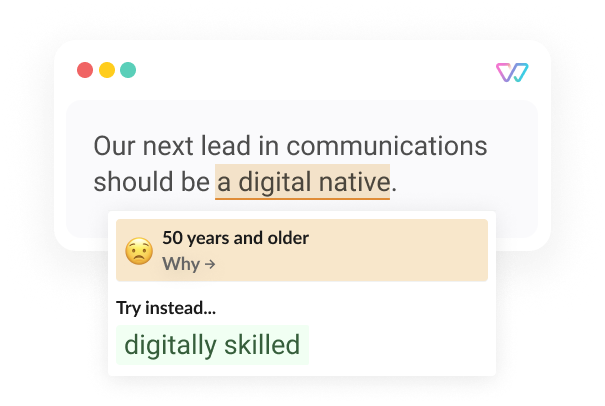
Advanced Example
